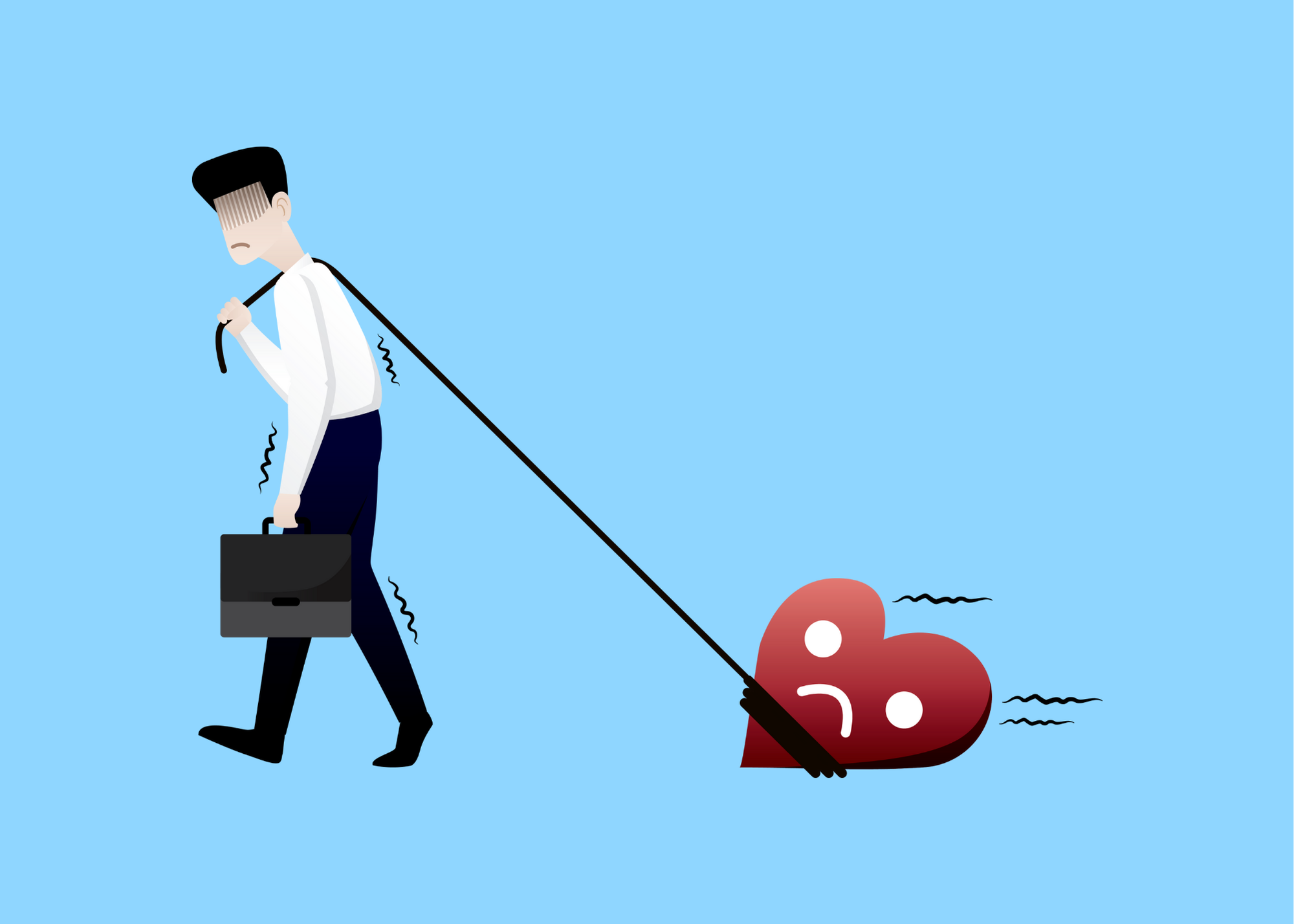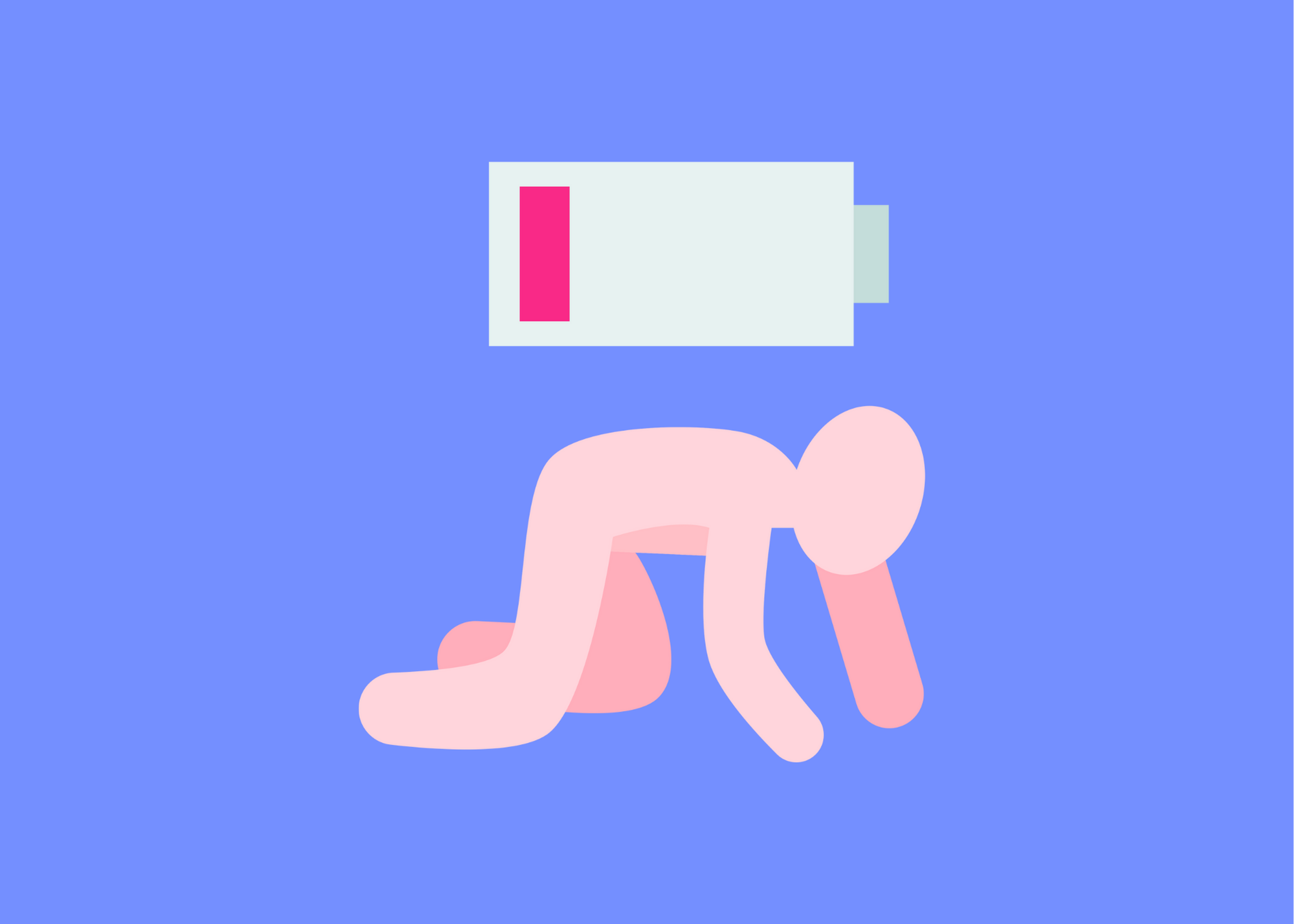Chronic Overachieving is a Fast Track to Burnout: Break the Cycle
The goal isn’t just to succeed—it’s to thrive.
Overachievement is often celebrated as a hallmark of success. Overachievers are typically seen as confident, disciplined, and relentlessly driven. From the outside, they appear to have it all—racking up accolades, climbing career ladders, and performing under pressure with ease. But behind this polished exterior is often an internal storm of chronic stress, exhaustion, and unmet emotional needs.
This relentless pursuit of success, fueled by perfectionism and fear of failure, quietly steers many high performers toward burnout—a state of emotional, physical, and mental depletion that leaves even the most accomplished feeling hollow, numb, and disconnected.
What makes overachievers especially vulnerable to burnout is the deeper psychology driving their behavior. Their identity becomes fused with achievement, and their self-worth is measured by productivity. The result? A toxic loop that rewards pushing harder, even when it's eroding their health, happiness, and relationships.
This isn’t just about being tired. It’s about being trapped in a performance-based identity that never feels satisfied. And unless the cycle is interrupted, the long-term consequences are serious—chronic health issues, career derailment, emotional burnout, and the loss of meaning or joy.
But there is a way out. Understanding the roots of overachievement—and the toll it takes—is the first step to reclaiming your health. With the right tools and mindset shifts, it’s possible to rewrite the story, redefine success, and build a life that supports both achievement and well-being.
The Psychology of Overachievement
No one wakes up one day and decides, “I’d like to live in a state of chronic overwhelm.” Overachievement is a learned survival strategy. It usually starts early—think straight A’s, gold stars, and the implicit (or explicit) message that you are lovable if you perform.
By adulthood, this conditioning becomes identity. You’re the go-to, the high performer, the person who gets it done no matter what. On paper? Rockstar. Internally? Anxious, exhausted, and maybe wondering why the success you chased so hard feels like a moving target.
The core drivers behind chronic overachievement include:
Perfectionism: Nothing is ever good enough.
External Validation: Praise is a drug, and you're always chasing the next hit.
Fear of Failure: Mistakes aren’t feedback—they’re catastrophes.
Conditional Self-Worth: You only feel valuable when you're producing, winning, or fixing something.
This isn’t just personality. It’s psychology meets survival instinct. And it has a shelf life.
How High Achievers Burn Out
Burnout doesn’t crash in like a tidal wave. It creeps in quietly—a missed workout here, a skipped meal there, a weekend spent catching up on emails instead of resting.
The progression typically looks like this:
Overcommitment: You say yes to everything because your default setting is "I'll handle it."
Neglecting Basic Needs: Sleep becomes optional. Meals are desk-bound. Workouts? Maybe next month.
Emotional Depletion: You’re exhausted, easily irritated, and joyless.
Physical Breakdown: Headaches, gut issues, adrenal fatigue, and constant low-grade illness.
Mental Fog: Once-sharp thinking becomes sluggish. Memory, focus, and decision-making suffer.
Disconnection: From loved ones. From purpose. From yourself.
And still, many overachievers double down. They push harder, convinced they just need to "power through."
Burnout Isn’t a Personal Failure. It’s a System Failure.
Burnout thrives in cultures that confuse productivity with worth. When leaders reward 14-hour workdays, glorify skipping lunch, and expect 24/7 availability, they create an ecosystem where burnout isn’t a risk—it’s inevitable.
For the overachiever, this environment feels like home. Their high-output tendencies are not just tolerated; they’re exploited. Promotions, accolades, and visibility are dangled like carrots in exchange for boundaryless work. Until the cost becomes too high to ignore.
If you’re burned out, the problem isn’t that you’re weak. It’s that you’ve been running a marathon at sprint pace without water, rest, or a finish line. That’s not heroic. That’s human.
What Happens When You Ignore Burnout
The consequences are real and measurable:
Chronic Health Issues: Heart disease, hypertension, autoimmune conditions, insomnia.
Mental Health Decline: Anxiety, depression, and in severe cases, PTSD-like symptoms.
Career Fallout: Poor performance, missed deadlines, or a complete career pivot born from desperation rather than clarity.
Relationship Strain: Emotional withdrawal, irritability, and disconnection from partners, children, and friends.
And perhaps most insidiously, a total loss of identity. When your self-worth is tied to productivity and you can no longer produce at your usual level, you begin to question who you are.
So, How Do You Break the Cycle?
Good news: recovery is possible. But spoiler alert—it doesn’t look like taking a weekend off and doing a face mask.
1. Reclaim Your Definition of Success
Forget what society, your boss, or your LinkedIn feed says. What does thriving look like for you?
Start here:
What do you want your daily life to feel like?
What are you chasing that no longer feels worth it?
What are you afraid to let go of?
Redefining success means swapping the dopamine hit of "doing more" for the deeper satisfaction of doing what matters.
2. Build Burnout-Proof Boundaries
No more martyrdom. Start practicing:
Saying no without over-explaining.
Logging off when your workday ends.
Scheduling time for meals, workouts, and rest—and treating those like meetings.
Burnout isn’t cured with more bubble baths. It requires structural change.
3. Fuel Your Body Like a High-Performer, Not a College Student
Caffeine and cortisol are not food groups. Aim for:
Balanced meals with protein, healthy fats, fiber, and complex carbs.
Hydration (half your body weight in ounces of water, minimum).
Strategic supplements if needed (work with a pro, not TikTok).
Your body is not a machine. But if it were, you’re currently running it on fumes.
4. Move Your Body—But Don’t Punish It
Overachievers love a good HIIT class. But when you're burned out, your nervous system needs regulation, not more stress. Try:
Walking (yes, really)
Strength training with intention, not ego
Mobility work, yoga, or Pilates
Short movement snacks throughout your day
Movement should be nourishment, not punishment.
5. Manage Stress Like It’s Your Job
Because it is.
Start with 5 minutes a day:
Box breathing or physiological sighs
Mindfulness meditation
Journaling
Body scans or progressive muscle relaxation
These are not "nice to have." They're essential for re-regulating your nervous system.
6. Work with a Burnout Recovery Coach
Here’s where I come in. Coaching helps you:
Identify and interrupt harmful patterns
Set boundaries and stick to them
Create sustainable routines
Build resilience and emotional regulation skills
Think of it as personal training for your mental, emotional, and physical health.
Burnout Recovery Often Sparks a Career or Life Pivot
When you finally come up for air, don’t be surprised if your career suddenly feels misaligned. That’s not failure. It’s clarity.
Many of my clients end up:
Leaving toxic jobs
Starting creative projects
Pursuing passion careers
Saying no to things they once chased with desperation
Burnout recovery often reveals what your nervous system has been screaming for years: this isn’t it.
Final Thoughts: Burnout Isn’t the End. It’s a Wake-Up Call.
If you see yourself in this cycle, you’re not broken. You’re just human—one who’s been trying to win a rigged game.
You don’t need to abandon your ambition. You just need to stop abandoning yourself in the process.
You can be successful and sane. You can have drive and downtime. You can lead without losing your health.
Choose thriving over surviving. And if you need help getting there, I’m just a click away.
Need Help? High performance shouldn't cost you your health.
If your ambition is intact but your energy is shot, you don’t need another motivational quote—you need a real strategy.
In 20 minutes, we’ll identify what’s draining you, what’s fixable, and what to do next.
💡 No fluff. Just clarity.
→ Schedule Your Free Strategy Session
Article References
The sources cited in the article:
Harvard Business Review (HBR). "How to Dial It Back When You’re a Chronic Overachiever." HBR - Chronic Overachiever
Harvard Business Review (HBR). “How Burnout Became Normal and How to Push Back Against It.” HBR - Burnout
Deloitte Insights. "Employee Health Contributes to Organizational Health." Deloitte - Employee Health
Deloitte Insights. "Mental Health Today A Deep Dive Based on the 2024 Gen Z and Millennial Survey.” Deloitte - Mental Health
National Institutes of Health (NIH). “Burnout Phenomenon.” NIH - Burnout Phenomenon






